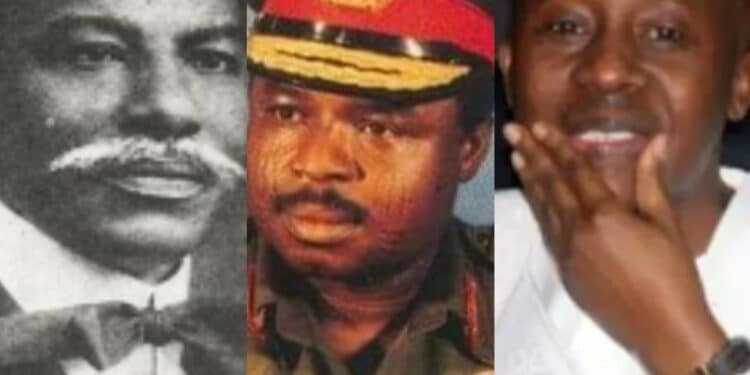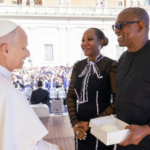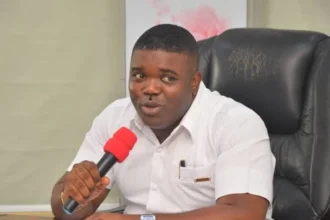
President Bola Ahmed Tinubu has approved the pardon and clemency of 175 convicts and former convicts across Nigeria, invoking the constitutional prerogative of mercy to promote justice, compassion, and national reconciliation. The decision, announced on Thursday, follows the recommendations of the Presidential Advisory Committee on the Prerogative of Mercy (PACPM) chaired by the Attorney-General of the Federation and Minister of Justice, Prince Lateef Olasunkanmi Fagbemi (SAN).
The beneficiaries include inmates who have demonstrated genuine remorse, good conduct, and commitment to rehabilitation through education and vocational training. Others received mercy due to advanced age, ill-health, or special humanitarian considerations.
In a historic gesture, President Tinubu also posthumously pardoned Sir Herbert Macaulay, Nigeria’s foremost nationalist, overturning a century-old conviction imposed by British colonial authorities in 1913. The President described Macaulay as “a patriot whose sacrifices laid the foundation of Nigeria’s independence.”
A Sweep of Clemency and Redemption
Among those pardoned are illegal miners, drug offenders, white-collar criminals, and capital offenders who had shown remorse and transformation during incarceration. Prominent beneficiaries include Major General Mamman Jiya Vatsa, executed in 1986 for alleged coup involvement; Professor Magaji Garba, convicted for obtaining money by false pretence; and Maryam Sanda, sentenced to death in 2020 for culpable homicide.
Equally significant was the posthumous pardon granted to environmental rights activist Ken Saro-Wiwa and the other eight members of the Ogoni Nine, who were executed in 1995 under the Abacha regime. Their names have now been officially cleared, marking a moment of moral correction and national healing for the Ogoni people and the Niger Delta.
The victims of the Ogoni crisis—Chief Albert Badey, Chief Edward Kobaru, Chief Samuel Orage, and Chief Theophilus Orage—were also honoured posthumously.
Breakdown of Clemency
According to the PACPM report, the President granted:
-
Pardon to two serving inmates and 15 former convicts, including 11 who are deceased.
-
Clemency to 82 inmates currently serving various prison terms.
-
Commutation of death sentences to life imprisonment for seven inmates who had exhibited reformative behaviour.
-
Sentence reductions for 65 inmates, reflecting the administration’s commitment to fair justice and human dignity.
Attorney-General Fagbemi presented the full report at the Council of State meeting, chaired by President Tinubu, where members commended the balanced approach combining justice with mercy.
Profiles of Beneficiaries
Those pardoned include:
-
Dr. Nwogu Peters (67), serving a 17-year jail term for fraud since 2013.
-
Hon. Farouk M. Lawan (62), convicted in 2021 for corruption, having completed his sentence.
-
Barr. Hussaini Alhaji Umar (58), fined in an ICPC case in 2023.
-
Ayinla Saadu Alanamu (63), jailed for bribery in 2019.
Drug offenders such as Nweke Francis Chibueze, serving life imprisonment for cocaine trafficking, and Fidelis Michael, convicted for cannabis possession, also benefited from the President’s clemency after demonstrating rehabilitation through education and good conduct in custody.
The clemency list included a group of illegal miners aged between 18 and 50, convicted in 2024. Their rehabilitation and reintegration into society will be supervised by Senator Ikra Aliyu Bilbis, who signed an undertaking to ensure their empowerment and moral reformation.
Humanitarian Considerations and Justice Reform
President Tinubu’s action underscores his administration’s commitment to criminal justice reform, rehabilitation, and second chances. The decision aligns with international human rights standards and Nigeria’s Correctional Service Act, which prioritises reformation over retribution.
Inmates such as Ex-Corporal Michael Bawa (72), who had spent 20 years in prison for murder, and Saad Ahmed Madaki (72), convicted for fraud, were granted clemency based on old age and ill health. Similarly, Maryam Sanda’s clemency plea, supported by her family, highlighted her transformation in custody and her role as a mother of two young children.
For inmates on death row, President Tinubu commuted their sentences to life imprisonment. These include Emmanuel Baba, Moses Ayodele Olorunfemi, and Benjamin Ekeze, among others, who were found deserving due to good behaviour and remorse.
Symbolism and National Renewal
The President’s decision to pardon the Ogoni Nine and Herbert Macaulay carries deep national symbolism. For the Ogoni people, it represents long-awaited justice and closure nearly three decades after the executions that drew global condemnation. For the nation, it reaffirms a moral commitment to historical truth, unity, and healing.
“This is not just about forgiveness; it is about the reaffirmation of our shared humanity,” a senior presidency source said. “President Tinubu wants the world to see a Nigeria that is fair, compassionate, and confident enough to confront its past.”
Restoring Hope Through Justice
The clemency exercise is part of a broader reform agenda aimed at decongesting Nigeria’s correctional facilities and promoting restorative justice. By offering redemption to deserving inmates, the Tinubu administration seeks to reinforce faith in the justice system and demonstrate that rehabilitation is both possible and valued.
The Presidential Advisory Committee on the Prerogative of Mercy will continue its review of pending cases to ensure that justice and compassion remain balanced in the exercise of executive powers.
As the statement issued by Bayo Onanuga, Special Adviser to the President on Information and Strategy, concluded:
“President Tinubu’s exercise of mercy reflects the spirit of a nation striving for renewal. It honours the principle that justice must be tempered with humanity and that no wrong is beyond redemption when genuine repentance meets the hand of forgiveness.”
— State House, Abuja
October 11, 2025






